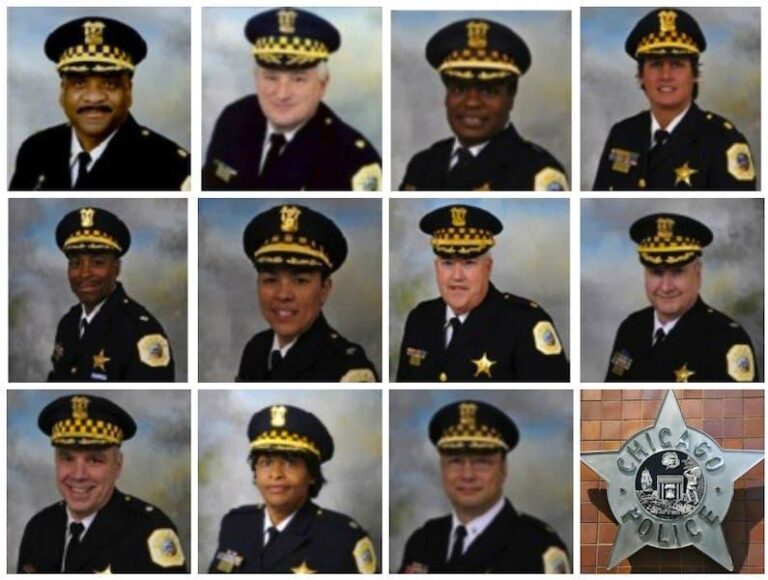Chicago Police Innovate Leadership Training with Humor-Driven Techniques
In a groundbreaking shift in law enforcement education, the Chicago Police Department is pioneering the use of comedy to cultivate stronger leadership capabilities among its officers. This inventive initiative combines humor with customary crime-fighting skills to enhance communication, teamwork, and community rapport.By embracing this unconventional method, Chicago demonstrates its dedication to nurturing empathetic and effective police leadership.
Officers participate in dynamic workshops featuring improvisational exercises and comedic role-plays that mimic high-pressure scenarios encountered on duty. These activities are designed to sharpen quick thinking, emotional intelligence, and collaborative problem-solving-traits essential for modern policing.
Trainers emphasize several key advantages of this approach:
- Strengthened team dynamics through shared laughter and creative collaboration
- Enhanced conflict management by incorporating humor into de-escalation tactics
- Elevated morale and reduced occupational stress among participants
| Training Module | Core Focus | Anticipated Benefit |
|---|---|---|
| Improv Exercises | Communication Agility | Quicker, clearer decision-making |
| Scenario Role-Plays | Empathy Advancement | Improved community trust |
| Comedy Sketches | Stress Reduction | Greater emotional resilience |
Leveraging Humor to Strengthen Police Leadership and Communication
Chicago’s law enforcement agencies are adopting humor as a strategic tool to cultivate leadership qualities and enhance communication skills within their ranks. By embedding comedy workshops into their training regimen, officers gain critical competencies such as emotional awareness, conflict defusing, and stress management in an engaging, memorable format. These sessions foster camaraderie and trust by breaking down traditional hierarchical barriers, ultimately improving both internal teamwork and public interactions.
Participants in this program have reported significant improvements in their ability to:
- Calm volatile encounters through well-timed humor and wit
- Engage in transparent communication with peers and community members
- Appreciate the human element inherent in their policing roles
| Skill | Advantage |
|---|---|
| Active Listening | Fosters empathy and reduces misunderstandings |
| Flexible Thinking | Encourages innovative solutions under pressure |
| Stress Management | Supports mental health and endurance |
Empathy and Community Relations Enhanced Through Improvisational Training
Chicago’s latest training model reimagines traditional police education by incorporating improvisational comedy techniques to boost officers’ interpersonal effectiveness. Developed in partnership with local theater artists and community advocates, this program encourages officers to move beyond rigid protocols and cultivate skills such as rapid adaptability, attentive listening, and emotional intelligence. Through unscripted role-playing, officers learn to approach tense encounters with compassion, thereby strengthening community bonds and minimizing conflict.
- Active Listening: Training officers to attentively understand and address community concerns
- Emotional Flexibility: Promoting adaptability in complex, real-time interactions
- Community Engagement: Building trust through shared human experiences
- De-escalation Strategies: Employing humor and empathy as alternatives to force
| Technique | Impact | Sample Activity |
|---|---|---|
| Improv Role-Playing | Enhances spontaneity and responsiveness | Rapid-fire scenario enactments |
| Narrative Sharing | Builds empathy through personal storytelling | Exchanging life experiences |
| Nonverbal Communication | Improves understanding of body language | Silent scene improvisation |
Scaling Comedy-Based Police Training Across the United States
To replicate Chicago’s success on a national scale, law enforcement agencies should customize comedy-infused training programs that align with their community’s cultural nuances. Incorporating interactive improvisation workshops focused on empathy, active listening, and rapid problem-solving can equip officers with essential leadership skills for today’s policing challenges. Collaborations with local comedians and theater professionals can ensure the content remains relevant and engaging across diverse populations.
Implementing a robust evaluation system is critical for sustaining program quality and tracking effectiveness. Recommended strategies include:
- Ongoing feedback loops involving officers and community stakeholders
- Quantitative and qualitative performance indicators targeting communication, conflict resolution, and team synergy
- Annual refresher sessions to reinforce competencies and adapt to emerging issues
The following table outlines a phased approach for nationwide adoption, balancing structure with adaptability:
| Phase | Goal | Primary Actions |
|---|---|---|
| Pilot | Evaluate and refine comedic training modules | Select diverse departments; gather extensive feedback |
| Expansion | Extend training to varied communities | Train facilitators; tailor content to local cultures |
| Integration | Embed comedy-based training into standard curricula | Incorporate sessions into leadership development programs |
Final Thoughts
As Chicago continues to explore innovative avenues for enhancing law enforcement, the fusion of humor and policing stands out as a promising frontier. By weaving creativity and laughter into leadership development,the city’s police force is setting a new standard for building community trust and officer resilience. This pioneering effort highlights the evolving understanding that effective policing demands not only tactical expertise but also empathy, communication, and adaptability. The nation will be watching closely as Chicago’s model demonstrates how humor and leadership can collaboratively transform public safety.





